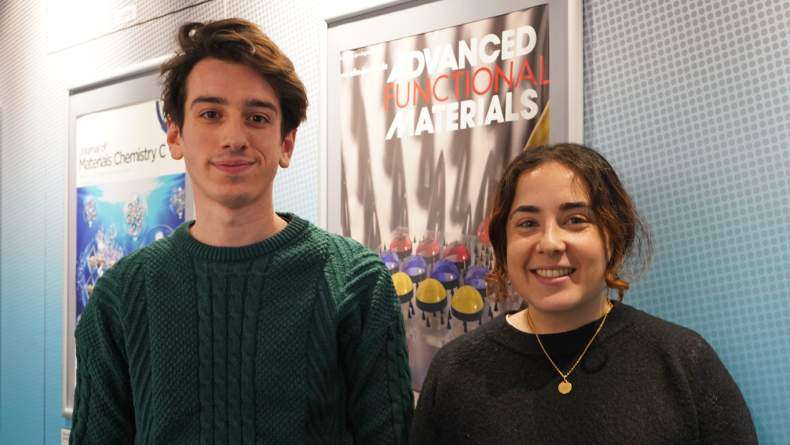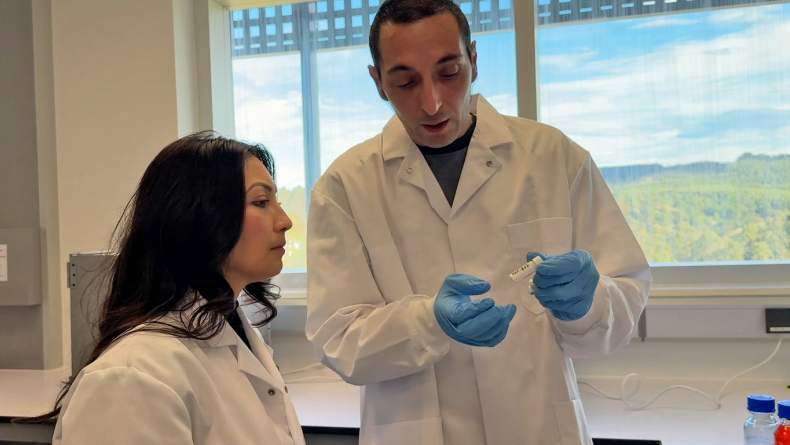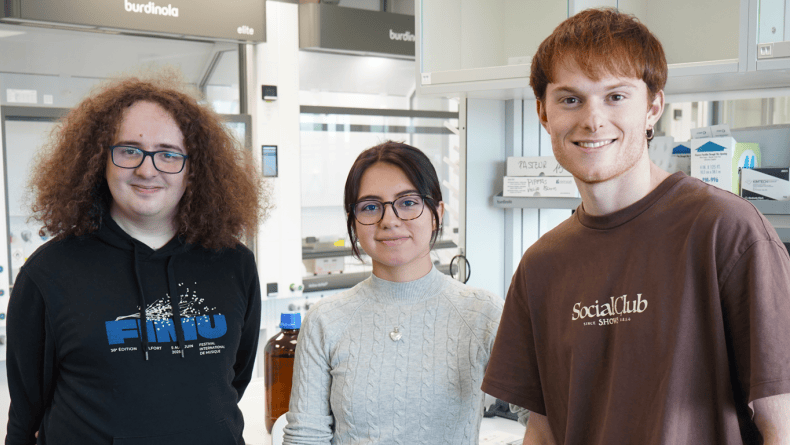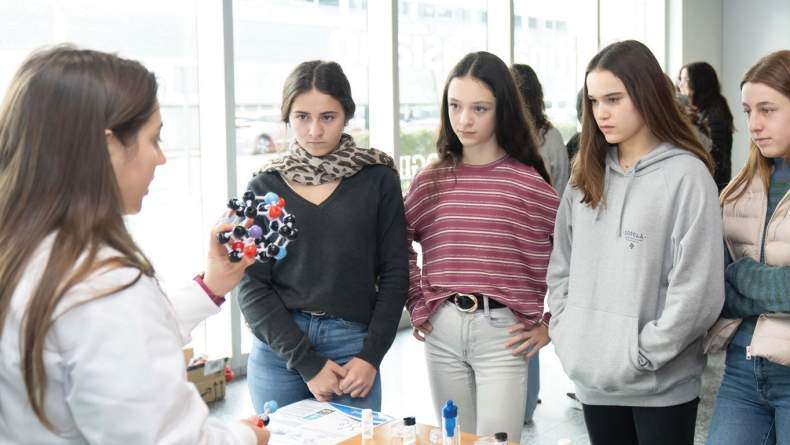BCMaterials Invited Talk: Sergey Kustov " “Microeddy Bordoni-type relaxation controls spin glass transitions?”

Next Thursday 18th BCMaterials and ZTF-FCT (UPV-EHU) present a Sergey Kustov Talk: “ Microeddy Bordoni-type relaxation controls spin glass transitions!?"
Seminario del Departamento de Electricidad y Electrónica 12:00 p.m.
 Acoustic techniques have not so far been used to study magnetic domain wall freezing effect typical for re-entrant spin glass transitions. Application of this method, which includes simultaneous measurements of linear microeddy and non-linear hysteretic magnetomechanical damping, to various materials having relatively low Curie temperatures (pure element – Dy, several types of ferromagnetic bulk metallic glasses, BMG), reveals the following regularities:
- a strong decrease of the long-range mobility of domain walls (or domain wall “freezing” effect) is controlled by a discovered linear microeddy current anelastic relaxation phenomenon;
- the microeddy relaxation is accompanied by a number of effects typical for the re-entrant spin glass transition as anomalies in magnetization, coercive force, magnetostriction, broken ergodicity;
- the microeddy current relaxation, which controls seemingly all (low field) magnetic properties is observed in completely different (in terms of crystallography and magnetism) materials, like pure Dy and BMGs;
- once the Curie temperature falls below the relaxation temperature, the re-entrant spin glass transition transforms into the spin glass one;
Based on the similarity of microeddy relaxation features in different ferromagnetic systems we propose that the relaxation is related to intrinsic properties of domain walls. We draw an analogy between the observed magnetic relaxation and the Bordoni anelastic relaxation due to the kink pair formation on a dislocation line.
One can assume that similar intrinsic properties of topological defects (domain walls) might control “glassy” transitions in other physical systems, like ferroelectrics and martensites
Acoustic techniques have not so far been used to study magnetic domain wall freezing effect typical for re-entrant spin glass transitions. Application of this method, which includes simultaneous measurements of linear microeddy and non-linear hysteretic magnetomechanical damping, to various materials having relatively low Curie temperatures (pure element – Dy, several types of ferromagnetic bulk metallic glasses, BMG), reveals the following regularities:
- a strong decrease of the long-range mobility of domain walls (or domain wall “freezing” effect) is controlled by a discovered linear microeddy current anelastic relaxation phenomenon;
- the microeddy relaxation is accompanied by a number of effects typical for the re-entrant spin glass transition as anomalies in magnetization, coercive force, magnetostriction, broken ergodicity;
- the microeddy current relaxation, which controls seemingly all (low field) magnetic properties is observed in completely different (in terms of crystallography and magnetism) materials, like pure Dy and BMGs;
- once the Curie temperature falls below the relaxation temperature, the re-entrant spin glass transition transforms into the spin glass one;
Based on the similarity of microeddy relaxation features in different ferromagnetic systems we propose that the relaxation is related to intrinsic properties of domain walls. We draw an analogy between the observed magnetic relaxation and the Bordoni anelastic relaxation due to the kink pair formation on a dislocation line.
One can assume that similar intrinsic properties of topological defects (domain walls) might control “glassy” transitions in other physical systems, like ferroelectrics and martensites
 Acoustic techniques have not so far been used to study magnetic domain wall freezing effect typical for re-entrant spin glass transitions. Application of this method, which includes simultaneous measurements of linear microeddy and non-linear hysteretic magnetomechanical damping, to various materials having relatively low Curie temperatures (pure element – Dy, several types of ferromagnetic bulk metallic glasses, BMG), reveals the following regularities:
- a strong decrease of the long-range mobility of domain walls (or domain wall “freezing” effect) is controlled by a discovered linear microeddy current anelastic relaxation phenomenon;
- the microeddy relaxation is accompanied by a number of effects typical for the re-entrant spin glass transition as anomalies in magnetization, coercive force, magnetostriction, broken ergodicity;
- the microeddy current relaxation, which controls seemingly all (low field) magnetic properties is observed in completely different (in terms of crystallography and magnetism) materials, like pure Dy and BMGs;
- once the Curie temperature falls below the relaxation temperature, the re-entrant spin glass transition transforms into the spin glass one;
Based on the similarity of microeddy relaxation features in different ferromagnetic systems we propose that the relaxation is related to intrinsic properties of domain walls. We draw an analogy between the observed magnetic relaxation and the Bordoni anelastic relaxation due to the kink pair formation on a dislocation line.
One can assume that similar intrinsic properties of topological defects (domain walls) might control “glassy” transitions in other physical systems, like ferroelectrics and martensites
Acoustic techniques have not so far been used to study magnetic domain wall freezing effect typical for re-entrant spin glass transitions. Application of this method, which includes simultaneous measurements of linear microeddy and non-linear hysteretic magnetomechanical damping, to various materials having relatively low Curie temperatures (pure element – Dy, several types of ferromagnetic bulk metallic glasses, BMG), reveals the following regularities:
- a strong decrease of the long-range mobility of domain walls (or domain wall “freezing” effect) is controlled by a discovered linear microeddy current anelastic relaxation phenomenon;
- the microeddy relaxation is accompanied by a number of effects typical for the re-entrant spin glass transition as anomalies in magnetization, coercive force, magnetostriction, broken ergodicity;
- the microeddy current relaxation, which controls seemingly all (low field) magnetic properties is observed in completely different (in terms of crystallography and magnetism) materials, like pure Dy and BMGs;
- once the Curie temperature falls below the relaxation temperature, the re-entrant spin glass transition transforms into the spin glass one;
Based on the similarity of microeddy relaxation features in different ferromagnetic systems we propose that the relaxation is related to intrinsic properties of domain walls. We draw an analogy between the observed magnetic relaxation and the Bordoni anelastic relaxation due to the kink pair formation on a dislocation line.
One can assume that similar intrinsic properties of topological defects (domain walls) might control “glassy” transitions in other physical systems, like ferroelectrics and martensitesRelated news
Sara Martín and Stefano Lunghi Join BCMaterials as New Researchers
BCMaterials is pleased to welcome two new members to its research team: Sara Martín Iglesias, a postdoctoral researcher in the Active and Smart Materials research line, and Stefano Lunghi, a…Nanomaterials for Water Remediation and Valorization
Scientific staff at BCMaterials are developing next-generation nanomaterials combined with naturally sourced polymer membranes for water decontamination and reuse. These advanced materials not only…Three New Resarchers Join BCMaterials
The new year has brought BCMaterials the arrival of three new young scientists to our staff. They are the pre-doctoral researchers Karen Cano and Mikel Russo, along with the post-doctoral researcher…BCMaterials Activities at Emakumeak Zientzian (Women in Science)
This year marks the 10th anniversary of the Emakumeak Zientzian (Women in Science) initiative, which brings together more than 30 Basque organizations (universities, research centers, companies…) to…



